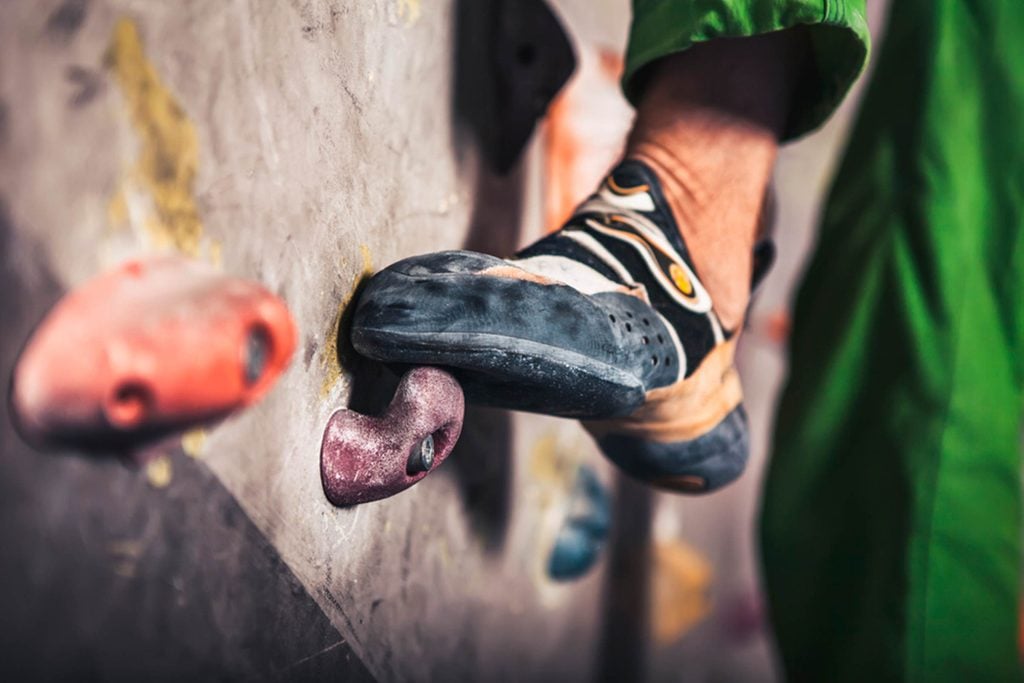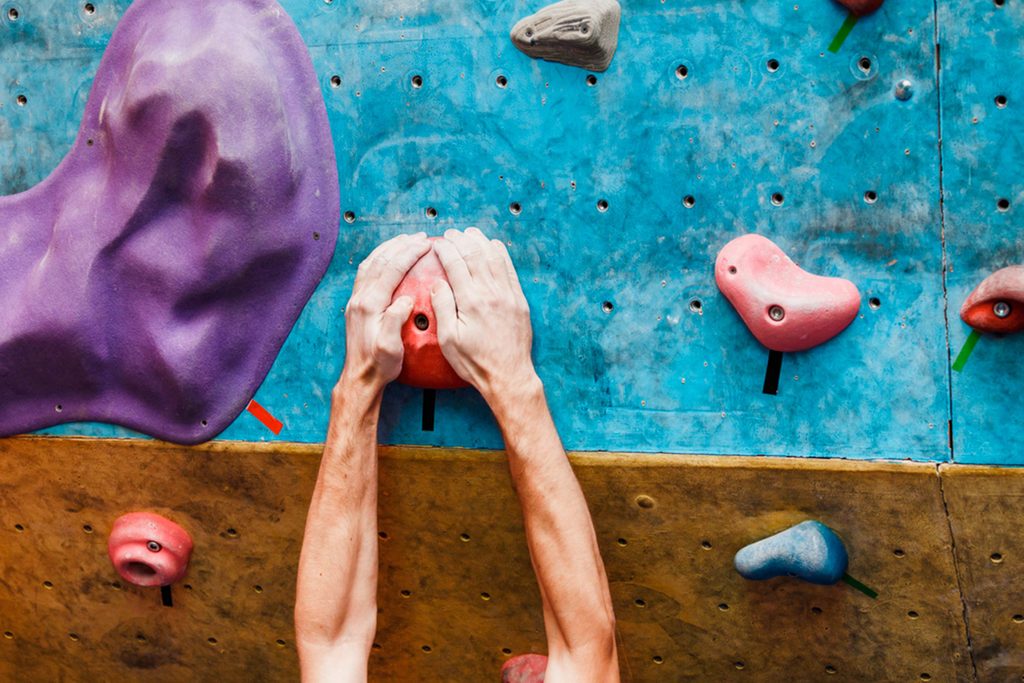Could Rock Climbing Treat Depression? Signs Point to Yes!
Updated: Jun. 02, 2017
Buckle up! A new study suggests a weekly bouldering session could work wonders for our mental health.
Sure, rock climbing helps you build strong muscles and increase stamina, but could it actually treat depression? Yes, say University of Arizona researcher Eva-Maria Stelzer and Katharina Luttenberger of the University of Erlangen-Nuremberg, who led a team of more than 100 people in a bouldering intervention in Germany.

The team’s findings, which were presented by Stelzer during the 29th annual Association for Psychological Science Convention in Boston and published in BMC Psychiatry, confirm that the social, mental, and physical endurance of bouldering could be successful psychotherapy for treating depressive adults. Some German hospitals are so sold on the effects that they’ve started using this activity, which involves climbing rocks or walls to a moderate height without ropes or a harness, as a therapeutic treatment for mental illness.

The study participants, most of whom were new to bouldering, were split into two random groups. One group started the intervention immediately, while the other group had to wait to start bouldering. Each participant bouldered for three hours a week, for eight weeks. Using standard measures of depression, the team assessed participants’ level of depression at different points during the study. The most significant finding was that during the experiment, the group who started the intervention immediately improved their depression scores by 6.27 points, while the wait-listed group’s scores increased by only 1.4 points.
Stelzer believes the mental health benefit comes from two major factors: improving social interactions and boosting self-efficacy. “There’s a social aspect along with the feeling of an immediate accomplishment when bouldering,” Stelzer says. “You have to be mindful and focused on the moment,” she adds, noting that the sport is adaptable to all levels of physical health, so it’s widely accessible.

If a weekly bouldering session doesn’t appeal, there’s no limit to the range of physical activity that might help ward off mental illness. “I’d always encourage patients to do the sport they like—be climbing or something else,” says study co-author Katharina Luttenberger. “Sports are a wonderful way to help prevent all possible sorts of illnesses, both mental and physical.” (Rock climbing in particular also burns a ton of calories!)
Depression is a severe illness and one of the most common mental disorders in the United States and worldwide. Even though a variety of treatment options exist, less than one-third of people get treatment for their symptoms. These are the hidden signs you might be depressed.












